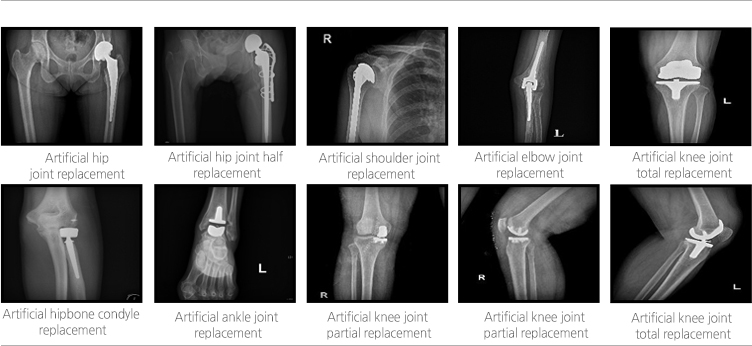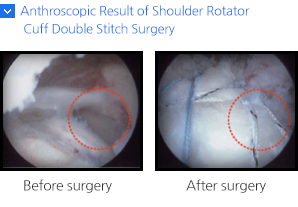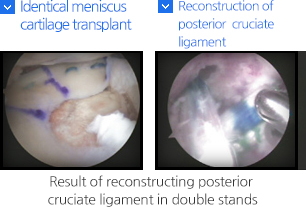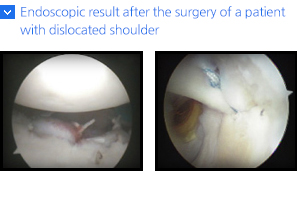Artificial Joint Surgery
For artificial knee joint and artificial hip joint surgeries, epidural anesthesia (spinal anesthesia) is used. The surgery mostly takes an about an hour and half, but this can vary depending on a patient’s condition.
Most patients start practicing walking by standing and using crutches, 1~2 days after surgery. Also, they can use restrooms from then. It is recommended to use crutches to walk for about 4~6 weeks after surgery, and patients can have normal life about 6~8 weeks after surgery. The most important thing is to visit the hospital continuously and receive regular checkups after surgery. Reoperation, due to the wearing out of artificial joint 10 years after artificial joint surgery, happens mostly for patients who bend their knees to work. Thus, it is good to avoid hard work or severe exercise that is too heavy on artificial joint after surgery.

Arthroendoscopy Surgery
Arthroendoscopy surgery examines a joint condition by making a small hole on a knee joint part that has a problem, and inserts an arthroendoscope that has a camera. When it finds foreign substances inside joints and damaged cartilage, it immediately cleans them. Since the internal part of joints can be enlarged through a ‘joint endoscopy’ monitor, a more accurate treatment is enabled and disease condition that couldn’t be identified with special CT or MRI scan can be accurately diagnosed for surgery. It is impossible to have joint endoscopy when cartilage has completely worn out and gone. In this case, the joint should be replaced with an artificial joint.
Advantages of Arthroendoscopy
- 1Since it is not a huge surgery that does not make an incision to a joint, there is a short recovery period.
- 2There is little pain, and the scar does not show well.
- 3A subminiature camera examines the joint very thoroughly for accurate analysis.
- 4There is an extremely low probability of complications.
- 5You can return to your daily life fast.
Indication of Arthroendoscopy
- 1Meniscus cartilage injury in the knee
- 2Anterior and posterior cruciate ligament rupture
- 3Osteochondral lesion in the knee
- 4Knee arthritis
- 5Frozen shoulder, stiff shoulder
- 6Rotator cuff tear
- 7Recurrence shoulder joint dislocation






